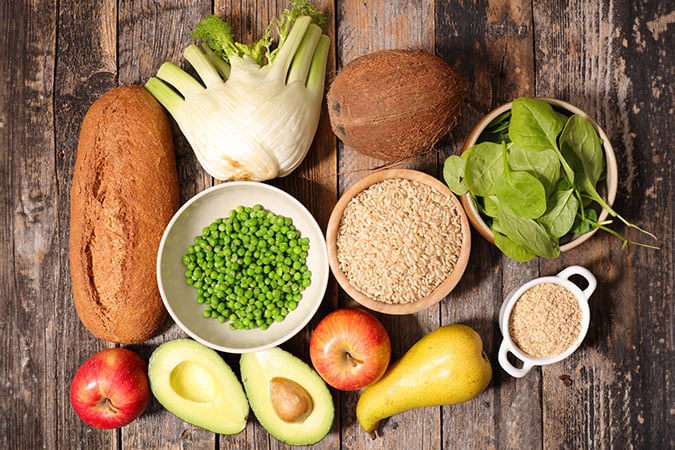- Grant awarded in 2019
Grant title
Vegetarian diets and cancer risk: analysis of individual participant data from nine prospective studies
Background
Diets rich in plant foods, such as fruit, vegetables and whole grains, have been associated with lower cancer risk, while eating red and processed meat increases colorectal cancer risk and may increase risk of other cancers. Vegetarians (those that exclude all meat and fish) and vegans (those that further exclude dairy products and eggs) usually consume a higher amount of plant foods compared with people who eat meat.
We would expect that because vegetarians and vegans do not eat meat and have a higher intake of plant foods, people who follow these diets have a lower cancer risk. However, these diets are also generally relatively low in some important nutrients and we don’t know if that may increase risk of some cancers.
While some studies have observed that those who follow a vegetarian diet have a lower risk of developing cancer as a whole, no individual study has been able to show with enough reliability that vegetarians have a lower risk of developing specific cancers (eg colorectal cancer, breast cancer or prostate cancer).
We propose that all relevant studies worldwide need to be put together to be able to answer this important question.
Aims and objectives
Our aim is to study if people who follow a vegetarian (including vegan) diet have a lower risk of developing certain cancers, compared with people who eat meat. Our objectives are to:
- Combine data from all international population studies that have a significant number of vegetarians.
- Assess with great accuracy if, compared with people who eat meat, people who follow a vegetarian diet have a lower risk of developing cancer looking at individual cancer sites, and also at tumour aggressiveness.
How it will be done
We will combine data from studies worldwide that included at least 25 per cent vegetarians or that have at least 5,000 vegetarians in their cohort. Participants must have been followed up to see if they develop cancer, and this should have been accurately assessed during the follow-up.
We have already identified nine eligible studies from Europe, the US, India and Taiwan, which would give a total of over 1.9 million participants, 90,000 vegetarians, and 190,000 new cancer cases. These studies will send the data of their participants to the Cancer Epidemiology Unit (University of Oxford), where it will be checked, harmonised and used to perform the statistical analyses.
To assess if vegetarian diets are related to lower risk of individual cancer sites compared with people who eat meat, we will use a statistical model in which we will take into account the length of follow-up, age and some important health and lifestyle characteristics of the participants.
Potential impact
This international collaboration provides the unique opportunity to assess with accuracy if people who follow a vegetarian or vegan diet have a lower risk of developing specific cancers. This will offer insights into the role of plant-based diets in cancer risk, and should have important implications for public health.
Grant publications
Perez-Cornago, A, Smith-Byrne, K, Hazelwood, E, et al. Genetic predisposition to metabolically unfavourable adiposity and prostate cancer risk: A Mendelian randomization analysis. Cancer Med. 2023; 12: 16482-16489.
Watling CZ, Kelly RK, Dunneram Y, Knuppel A, Piernas C, Schmidt JA, Travis RC, Key TJ, Perez-Cornago A. Associations of intakes of total protein, protein from dairy sources, and dietary calcium with risks of colorectal, breast, and prostate cancer: a prospective analysis in UK Biobank. Br J Cancer. 2023 Sep;129(4):636-647. doi: 10.1038/s41416-023-02339-2. Epub 2023 Jul 5. PMID: 37407836; PMCID: PMC10421858.
Cody Z. Watling, Rebecca K. Kelly, Neil Murphy, Marc Gunter, Carmen Piernas, Kathryn E. Bradbury, Julie A. Schmidt, Timothy J. Key, Aurora Perez-Cornago; Prospective Analysis Reveals Associations between Carbohydrate Intakes, Genetic Predictors of Short-Chain Fatty Acid Synthesis, and Colorectal Cancer Risk. Cancer Res 15 June 2023; 83 (12): 2066–2076.
Circulating insulin-like growth factors and risks of overall, aggressive and early-onset prostate cancer: a collaborative analysis of 20 prospective studies and Mendelian randomization analysis International Journal of Epidemiology, 21 June 2022



